As the days stretch longer and the glorious sun beckons us to our patios, gardens, and outdoors, there’s one tiny, buzzing, and often unwelcome guest that tries to spoil the party: insects!
While we’ve long relied on conventional repellents to keep them at bay, I know many of you, like me, are yearning for alternatives that align with our natural, holistic approach to living. And guess what? Science is absolutely brimming with good news!
According to sources, more and more people are seeking natural ways to protect themselves and their families from these pesky critters, and the power of plants is increasingly backed by research. In this post, we’re going to dive deep into ten magnificent natural bug repellents that are not only wonderfully effective but also sing a sweet song to our love for vibrant gardens, homegrown solutions, and beautifully designed, comfortable outdoor spaces. Let’s reclaim our evenings!
1. Lemon Eucalyptus Oil
Derived from the enchanting lemon-scented gum eucalyptus tree, oil of lemon eucalyptus (OLE) stands out as one of the most celebrated and effective natural insect repellents. In fact, the Centers for Disease Control and Prevention (CDC) even acknowledges its remarkable efficacy! Studies have demonstrated that a 32 percent concentration of this incredible oil can provide over 95 percent protection against mosquitoes for up to three hours. It’s truly a fantastic DEET-free option for your arsenal. Just be sure to look for “oil of lemon eucalyptus” (OLE) and not “lemon eucalyptus essential oil,” as the former is the EPA-registered repellent with proven effectiveness.
DIY Lemon Eucalyptus Spray
For a wonderfully simple homemade repellent, you can mix one part OLE with ten parts sunflower oil or witch hazel. It’s important to note, however, that this particular mixture is not recommended for use on children under the age of three, so keep that in mind when preparing your batch.
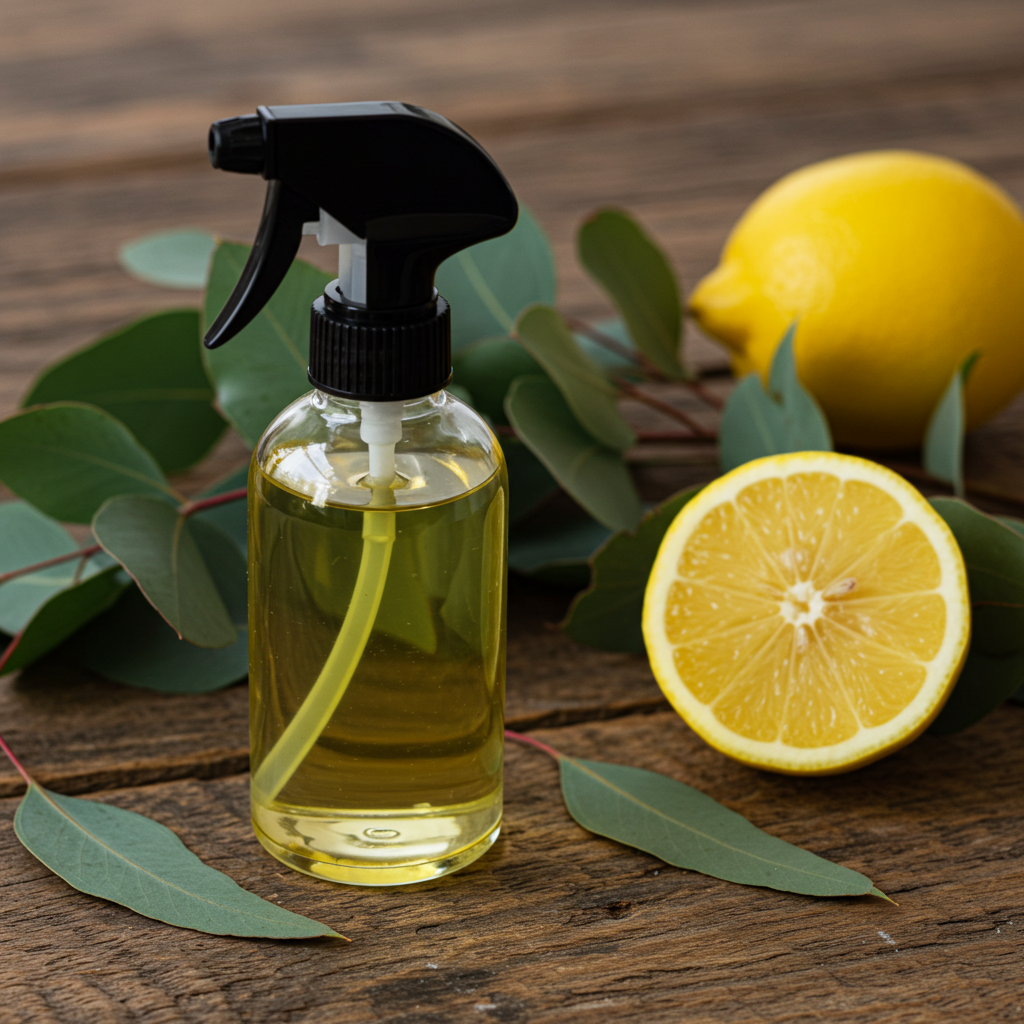
2. Lavender
Ah, lavender! This beloved garden staple is so much more than just a pretty flower with a calming scent. Did you know that when you crush lavender flowers, they release an oil that has been found to be surprisingly effective at repelling adult mosquitoes? One fascinating study conducted on hairless mice even showed that lavender oil was successful in keeping mosquitoes at bay. Beyond its potent repellent properties, lavender also boasts incredible analgesic, antifungal, and antiseptic qualities. So, if a sneaky bite does get through, a little lavender can help soothe and calm your skin.
Harnessing Lavender’s Power
To truly embrace lavender’s repellent magic, you can simply rub crushed lavender flowers directly on your skin. Imagine the delightful scent! For a more integrated approach, plant it generously around your patio, seating areas, and any outdoor living spaces where you gather. For a convenient homemade spray, you can easily dilute lavender essential oil with a gentle carrier oil like almond oil.
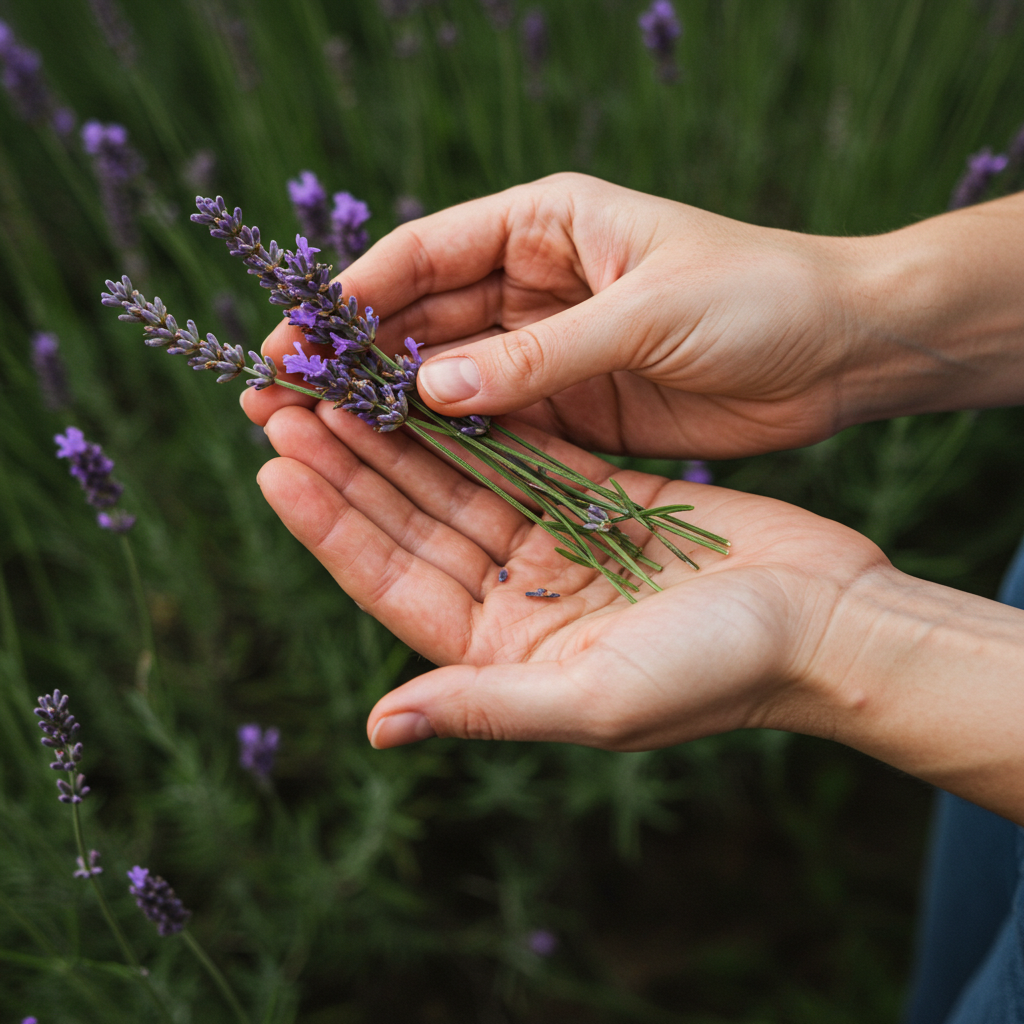
3. Catnip (Nepeta cataria)
While most famously known for its euphoric effect on our feline friends, catnip’s essential oil, nepetalactone, is an absolutely powerhouse insect repellent. According to research from Iowa State University, catnip is about ten times more effective at repelling mosquitoes than even DEET! Other studies have further confirmed its effectiveness, showing that it can repel mosquitoes for a solid two to three hours. The secret? The plant’s compounds actually trigger a pain or itch receptor in insects, making it an irritant they actively want to avoid. How clever is Mother Nature?
Using Catnip for Protection
Embrace the power of catnip by growing it directly in your garden—it’s a fantastic natural deterrent! For quick personal protection, you can rub fresh catnip leaves on your skin, which can offer about 30 minutes of reprieve. If you’re looking for a longer-lasting solution, consider making a lotion infused with catnip essential oil.
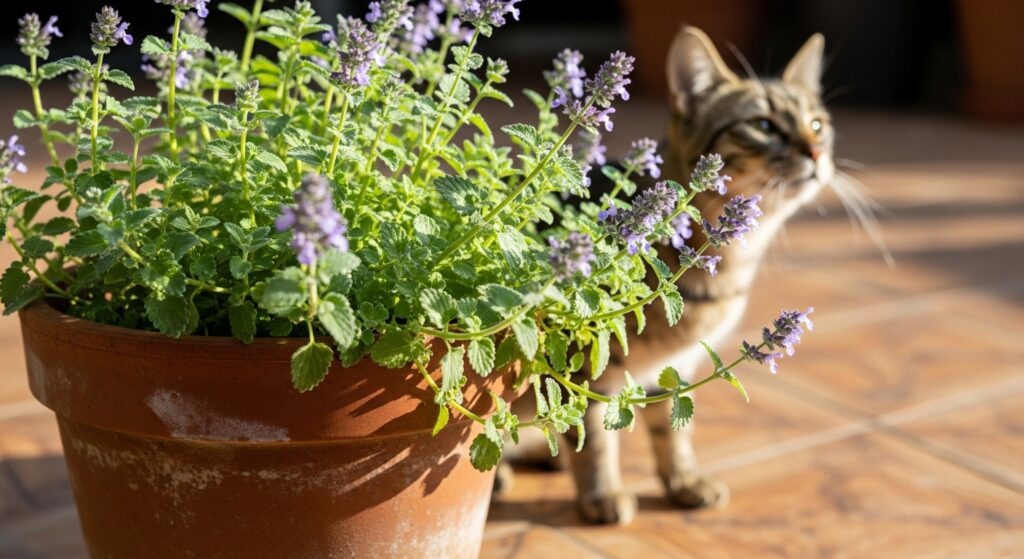
4. Thyme
This incredibly versatile culinary herb isn’t just for seasoning your delicious homegrown meals; it also packs a significant punch when it comes to repelling mosquitoes. Research has consistently shown that the essential oil derived from thyme, particularly compounds like carvacrol and thymol, is highly effective at keeping those buzzing nuisances away. In fact, one study even found that a solution containing 2% alpha-terpinene, a compound found in thyme, could be a viable alternative to commercial mosquito repellents. And it gets better: thyme oil has also shown great promise in controlling insect pests in agriculture, proving its broad capabilities!
Creating a Thyme-Infused Repellent
For a truly homemade thyme-based repellent that you can trust, you can mix four drops of thyme essential oil for every teaspoon of a wonderful base oil like olive or jojoba oil. If you prefer a spray, simply combine five drops of thyme oil with two ounces of water. It’s all about creating your own natural solutions!

5. Cinnamon Oil
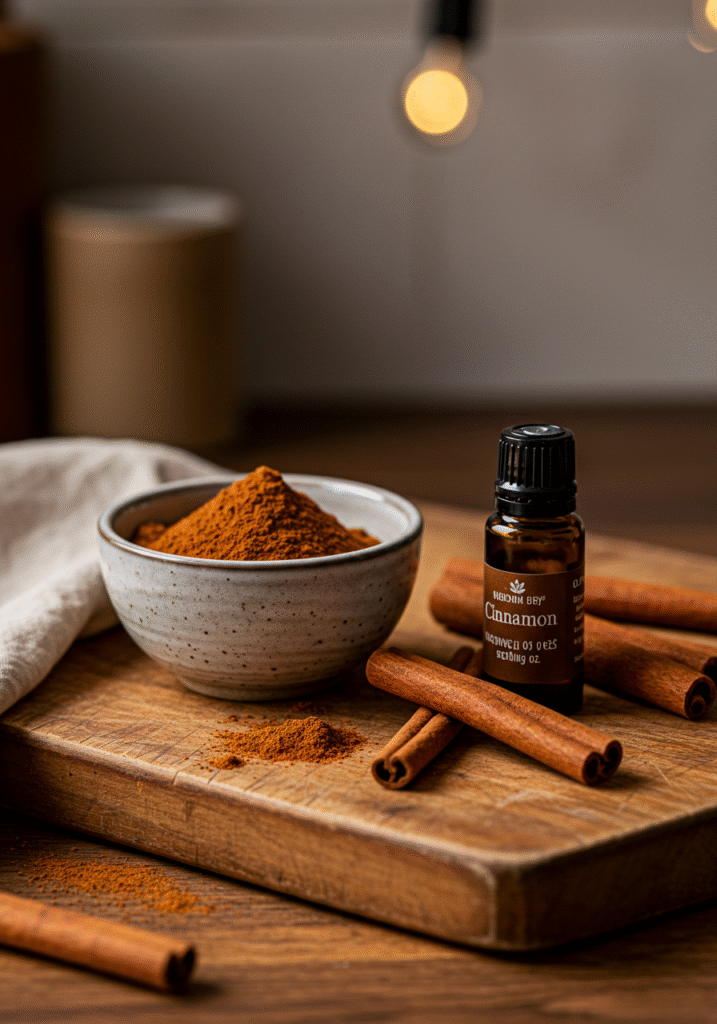
The warm, inviting, and spicy scent of cinnamon isn’t just for your holiday baking and cozy interior design touches! Believe it or not, cinnamon oil has been identified as a remarkably effective mosquito repellent and can even go a step further by killing mosquito eggs. Studies have shown that its active compound, cinnamaldehyde, is particularly potent against the challenging Asian tiger mosquito. And here’s another fun fact for your natural pest control playbook: cinnamon oil can also deter other common household pests like cockroaches and fruit flies!
How to Use Cinnamon Oil
To craft a diluted cinnamon oil spray, simply mix about 1/4 teaspoon (which is roughly 24 drops) of the oil with four ounces of water. You can then lovingly spray this mixture on your skin, clothing, and even around your home for added protection. However, a word of caution from your gardening expert: be mindful when applying cinnamon oil, as it can be quite potent! Always do a patch test first.
6. Tea Tree Oil

Ah, tea tree oil, or melaleuca oil, a true powerhouse in the natural world! Known far and wide for its incredible antiseptic and anti-inflammatory properties, it’s also a surprisingly effective insect repellent. Field tests have beautifully demonstrated its effectiveness against mosquitoes, bush flies, and even those tiny, annoying biting midges. Some studies have even dared to suggest that tea tree oil can be more effective than DEET under certain conditions! Its active compounds, like terpinen-4-ol and cineole, work their magic by disrupting the sensory perception of mosquitoes. How clever is that?
Applying Tea Tree Oil Safely
It is absolutely crucial to dilute tea tree oil with a gentle carrier oil, such as almond oil, before applying it to your precious skin. A common and safe recipe is to mix three to five drops of tea tree oil in one ounce of your chosen carrier oil. A very important note from your expert friend: never, ever ingest tea tree oil, as it is toxic if swallowed. Safety first, my friends!
7. Neem Oil
While research on its effectiveness has shown a bit of a mixed bag, some studies do indeed suggest that neem oil can offer significant protection against those annoying mosquitoes. For instance, a study in Ethiopia indicated that it provided over 70 percent protection for three hours! Neem oil contains a complex, fascinating mixture of compounds, with azadirachtin being a key component that wonderfully deters biting insects. It’s also widely used in agriculture to protect crops from pests, showcasing its broad-spectrum natural power.

Using Neem Oil as a Repellent
To harness neem oil as a mosquito repellent, you can dilute 50 to 100 milliliters of neem oil in water or another oil. This creates a powerful solution for your garden or outdoor areas. However, it’s very important to note that neem oil is not approved for topical use as a personal repellent because it can, unfortunately, cause skin irritation in some individuals. Always prioritize safety and consult with a professional if you have concerns about skin sensitivity!
8. Clove Oil
The strong, wonderfully pungent aroma of clove oil isn’t just a delightful addition to your cozy home décor during the colder months; it has been shown to be a truly powerful mosquito repellent! Eugenol, the main component of clove oil, is the primary active ingredient responsible for its impressive repellent properties. Studies have revealed that clove oil can provide protection from mosquito bites for over an hour at a 10% concentration. That’s fantastic news for enjoying your outdoor spaces!
Preparing a Clove Oil Repellent
For a beautiful homemade repellent, you can absolutely mix clove essential oil with a carrier oil. It is absolutely essential to dilute it properly to avoid any potential skin irritation. Interestingly, research suggests that the specific carrier oil you use can be critical to its overall effectiveness, so experiment a little to find what works best for you!

9. Geraniol
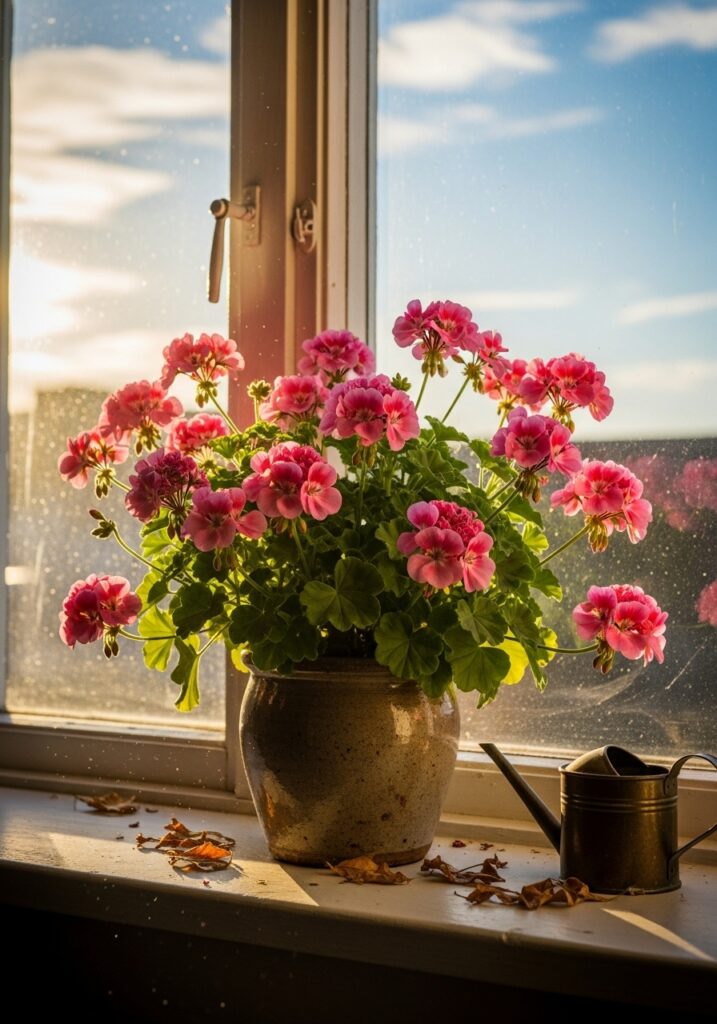
Geraniol, a beautiful alcohol derived from wonderful plant oils like citronella, lemongrass, and even rose, is a truly effective ingredient in natural mosquito repellents. Research has consistently indicated that geraniol can provide significant protection from mosquito bites for over an hour. It’s so well-recognized for its efficacy that it’s actually acknowledged by the EPA as a minimum-risk pesticide. How amazing is that for a natural solution?
Finding Geraniol-Based Repellents
You can easily find commercially available natural repellents that proudly list geraniol as an active ingredient. It’s also a key component of many of the other fantastic essential oils we’ve already mentioned, significantly contributing to their overall repellent properties. This means you might already be benefiting from its power in your current natural arsenal!
10. Rosemary
Oh, rosemary! This wonderfully fragrant herb, a staple in so many of our cherished gardens and kitchens, also boasts a well-deserved reputation for repelling insects. Studies have indicated that rosemary essential oil can be an incredibly effective mosquito repellent. It’s truly another excellent option for those of us who adore gardening and are keen to incorporate functional, beautiful plants directly into our vibrant landscapes and outdoor living spaces.
Utilizing Rosemary for Bug Control
Simply planting rosemary abundantly around your outdoor living spaces can provide a delightful, aromatic barrier that helps deter mosquitoes. For an extra layer of protection, you can also use rosemary essential oil in your homemade repellent sprays, often in combination with other wonderful repellent oils for a truly synergistic and powerful effect. Embrace its natural charm and utility!
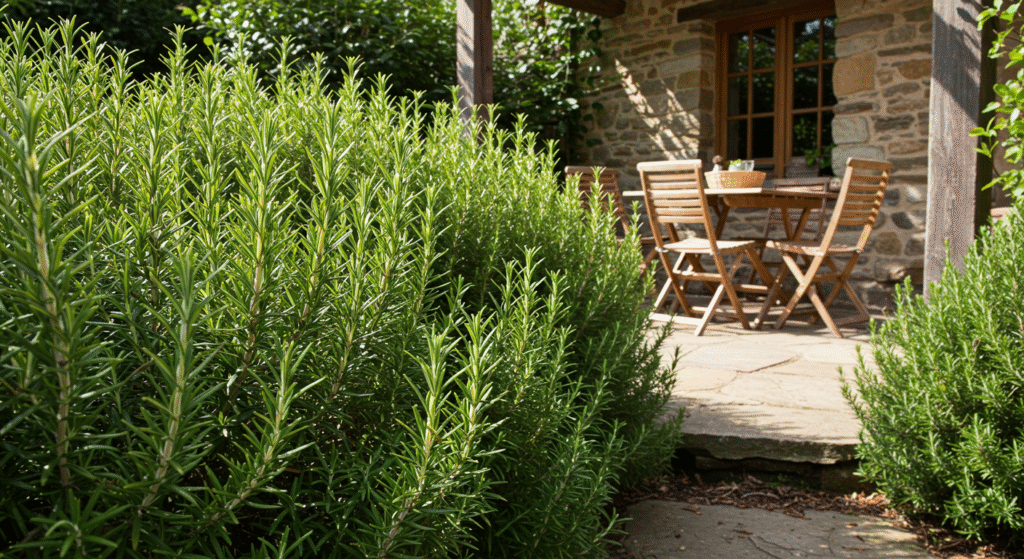
By passionately embracing the incredible power of these scientifically-backed natural repellents, you, my friends, can truly luxuriate in the beauty of the great outdoors without the slightest annoyance of biting insects. Whether you’re an avid gardener tending to your precious plants, a lover of delicious homegrown foods, or simply someone who deeply appreciates a beautifully designed and functional living space, incorporating these magnificent plants and their potent essential oils into your life can provide a safe, effective, and wonderfully aromatic way to keep those bothersome bugs gracefully at bay. Happy gardening and joyous outdoor living!

0 Comments